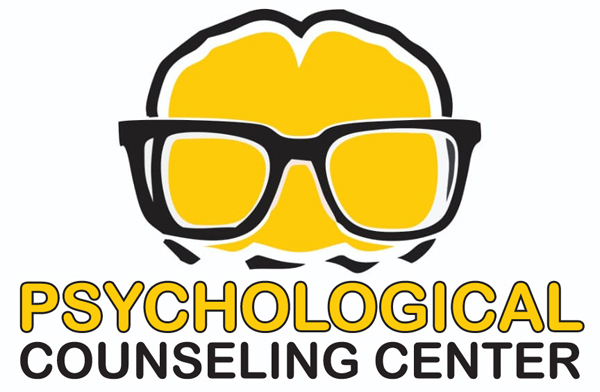Introduction:
Ending a friendship can be a difficult and painful experience, but sometimes it is necessary for one’s emotional well-being.
There are various psychological reasons why people choose to end friendships, including a lack of trust or respect, incompatible values or lifestyles, and the presence of toxic behaviors such as manipulation or abuse.
When a friendship becomes more draining than fulfilling, it can take a toll on one’s mental health and happiness.
It is important to prioritize self-care and recognize that it is okay to let go of relationships that no longer serve us.
While it may be challenging at the moment, ending a friendship can ultimately lead to personal growth and the opportunity to form new, healthier connections.
1. Ending Friendship and its psychological reasons.
Ending a friendship can be a challenging and emotional experience, but it is sometimes necessary for one’s mental and emotional well-being.
People often choose to end friendships due to various psychological reasons such as a lack of trust or respect, incompatible values or lifestyles, or the presence of toxic behaviors such as manipulation or abuse.
When a friendship becomes more draining than fulfilling, it can negatively affect one’s mental health and happiness.
It is essential to prioritize self-care and recognize that it is okay to let go of relationships that no longer serve us.
Although it may be difficult at first, ending a friendship can ultimately lead to personal growth and the opportunity to form new, healthier connections.
It is important to understand that the ending of a friendship does not diminish the value of the relationship or the memories shared.
As we evolve and change throughout life, our relationships may also change, and it is important to accept this as a natural part of growth.
By ending a friendship, we can create space for new experiences and connections, and ultimately, find a sense of peace and fulfillment in our lives.
2. Reasons why friendships may come to an end
There are several reasons why friendships may come to an end. One common reason is a falling out, which can occur when two friends experience a significant disagreement or conflict that they cannot resolve.
This may lead to a breakdown in communication and ultimately, the end of the friendship.
Another reason friendships may end is due to changing life circumstances. This could be a result of moving away, starting a new job, or getting into a new relationship that takes up more time and attention.
These changes can create distance between friends and cause them to drift apart.
Growing apart is also a common reason for the end of a friendship.
People naturally change over time, and their interests, beliefs, and values may shift. This can lead to a loss of connection between friends and ultimately, the decision to end the friendship.
It is essential to recognize that the end of a friendship is a normal part of life and does not necessarily mean that one person is at fault.
Sometimes, people simply outgrow each other or move in different directions.
It is important to approach the end of a friendship with understanding and compassion and to focus on cherishing the memories and experiences shared rather than dwelling on the loss.
3. Acknowledging that ending a friendship doesn’t necessarily mean that one person is to blame
It is important to acknowledge that ending a friendship does not always indicate that one person is responsible for its demise.
Friendships can be complex relationships that involve two individuals with their own unique personalities, beliefs, and values.
Thus, it is essential to avoid placing blame on ourselves or others for the end of a friendship.
Sometimes, the end of a friendship is a mutual decision made by both individuals due to a variety of reasons. It is important to accept the situation and focus on moving forward positively.
Rather than dwelling on the loss of the friendship, it is important to focus on the positive experiences and memories shared.
By doing so, we can appreciate the relationship for what it was and move on with a positive outlook.
It can also be helpful to recognize that the end of a friendship may be an opportunity for personal growth and development.
This can include building new relationships or focusing on personal hobbies and interests.
Ultimately, it is important to approach the end of a friendship with compassion and understanding.
While it may be painful at first, we can learn from the experience and use it as an opportunity for personal growth and reflection.
4. Psychological factors behind ending friendship
a. Toxic behavior
Toxic behavior can be a significant reason behind ending friendship. Toxic behavior can take many forms, including emotional manipulation, gaslighting, and disrespect.
If a friend consistently engages in toxic behavior, it can have a detrimental effect on our mental health and well-being.
In such cases, ending the friendship can be the best option to protect ourselves from further harm.
It is important to recognize the signs of toxic behavior in a friendship.
These signs may include feeling drained after spending time with a friend, feeling like you always have to walk on eggshells around them, or feeling like they do not respect your boundaries.
b. Personal growth
Personal growth can also be a reason for ending a friendship. As we grow and change, our interests, beliefs, and values may shift.
This can result in us no longer feeling connected to a particular friend. In such cases, it is okay to end the friendship and move on to new relationships that align better with our current selves.
It is important to recognize that personal growth is a natural part of life. It is okay to outgrow certain relationships and move on to new ones that better align with our current selves.
c. Fear of judgment
The fear of judgment can be a psychological factor behind ending a friendship. We may worry about how others will perceive us if we end a friendship.
It is essential to recognize that our mental health and well-being should always come first. If a friendship is no longer serving us, it is okay to move on, and it does not make us bad people.
d. Guilt
Finally, guilt can also be a psychological factor behind ending a friendship. We may feel guilty about ending a friendship, especially if it has been a long-standing relationship.
However, it is important to recognize that sometimes, ending a friendship is necessary for our mental health and well-being.
Holding onto a friendship out of guilt can lead to resentment and further damage the relationship.
It is important to approach the situation with empathy and compassion, both for ourselves and for our friends. Ending a friendship does not have to be a hostile or negative experience.
We can express our feelings honestly and respectfully and try to end the friendship in a way that is mutually respectful and compassionate.
5. Coping strategies for ending friendship
a. Give yourself time to grieve and heal
When a friendship ends, it can be a significant loss that may require time and space to grieve and heal.
It is normal to experience a range of emotions such as sadness, anger, and frustration.
It is important to allow ourselves to feel these emotions and to take time to process them. This can involve talking to friends or family members, writing in a journal, or seeking professional help if necessary.
Taking the time to grieve and heal is crucial for moving forward positively. It can allow us to acknowledge the relationship for what it was, appreciate the positive memories, and learn from the negative experiences.
During this time, it is also essential to practice self-care and self-compassion. This can include getting enough rest, eating a healthy diet, exercising regularly, and engaging in activities that bring us joy and fulfillment.
By giving ourselves the space and time to grieve and heal, we can emerge stronger and more resilient.
We can learn from the experience and use it as an opportunity for personal growth and reflection.
b. Practice self-care
Engaging in self-care is essential during periods of transition, particularly when experiencing the loss of a friendship.
It is crucial to prioritize activities that promote well-being and bring joy to our lives.
One way to practice self-care is by incorporating exercise into our daily routine. Exercise has numerous benefits, including reducing stress and anxiety, improving mood, and promoting physical health.
Meditation is another effective self-care practice. It can help to calm the mind, reduce stress, and improve focus and concentration.
Practicing meditation regularly can also promote greater self-awareness and self-acceptance.
Spending time with loved ones is also an essential aspect of self-care. It can provide a sense of connection and support during difficult times.
This may involve spending time with family or friends, participating in group activities, or simply engaging in meaningful conversations.
Engaging in a hobby is another excellent way to promote self-care. Pursuing an activity that brings joy and fulfillment can be a powerful way to reduce stress, improve mood, and promote personal growth and development.
Overall, incorporating self-care practices into our daily routine is essential for promoting well-being and navigating periods of transition effectively.
By prioritizing activities that bring joy and fulfillment, we can emerge stronger and more resilient.
c. Seek support from loved ones









